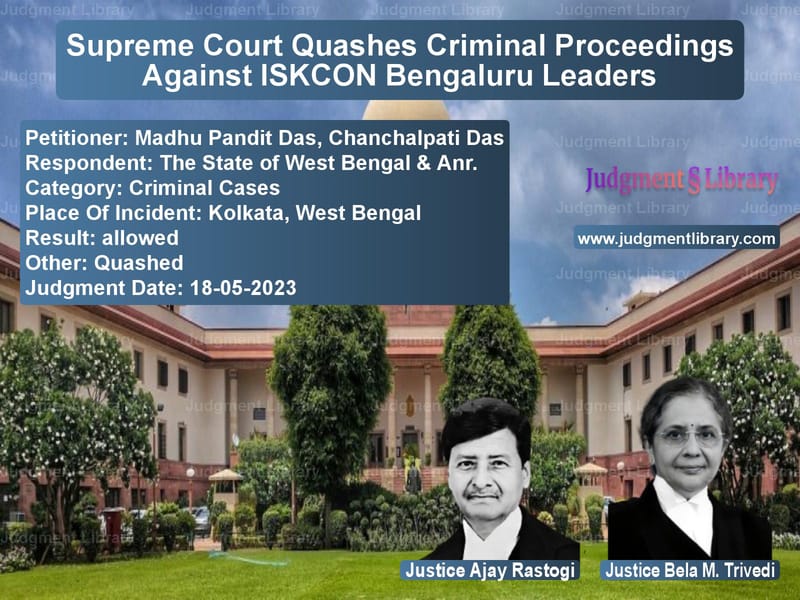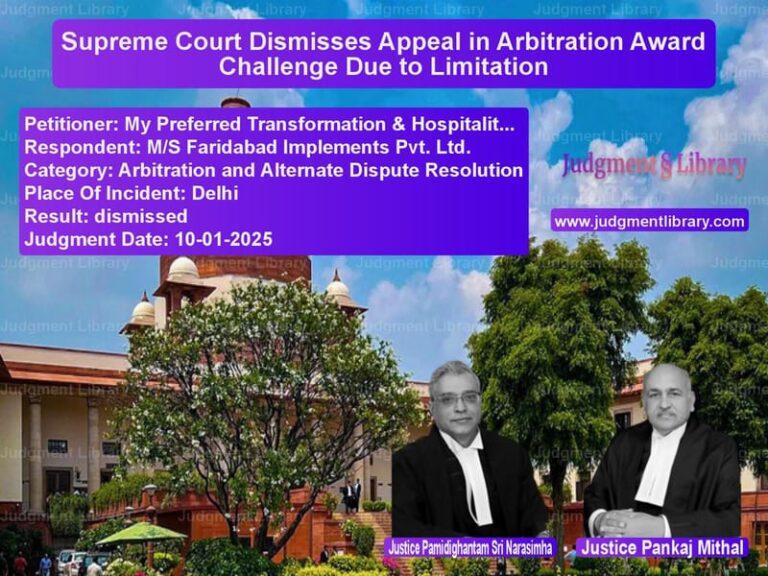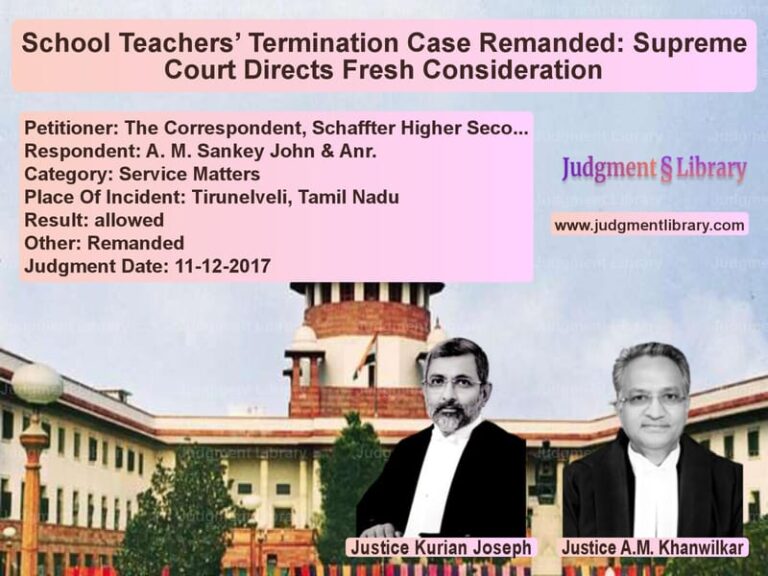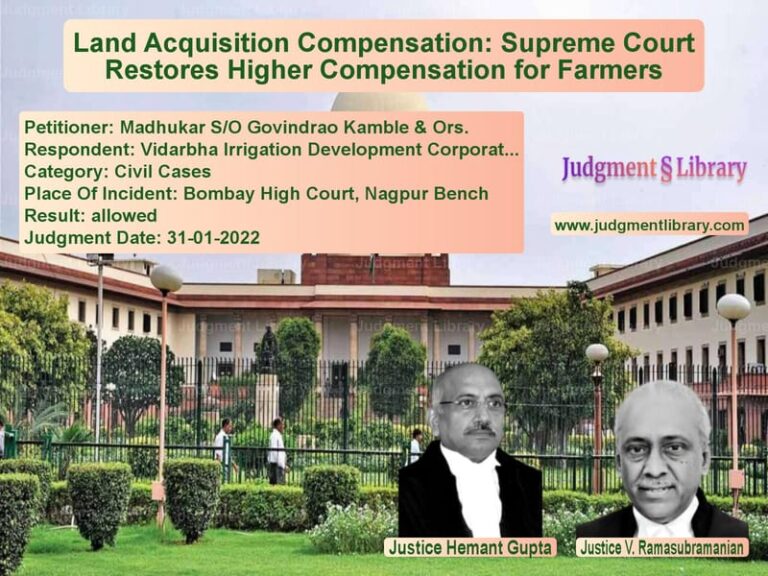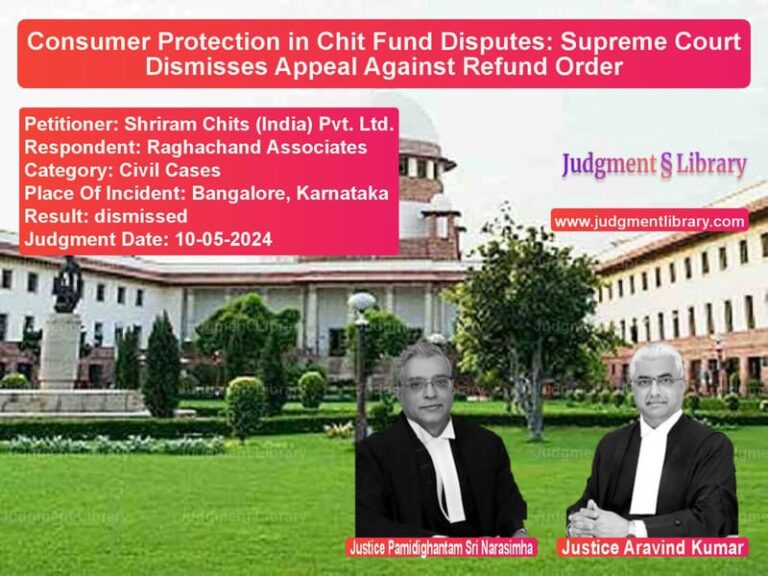Supreme Court Quashes Criminal Proceedings Against ISKCON Bengaluru Leaders
The Supreme Court of India recently quashed criminal proceedings against ISKCON Bengaluru leaders, Madhu Pandit Das and Chanchalpati Das, in a long-standing dispute involving allegations of misappropriation and forgery. The case, which originated from a complaint filed in 2006, accused the appellants of unlawfully transferring a luxury bus belonging to ISKCON Kolkata to Bengaluru. The Supreme Court found the case to be an abuse of the judicial process, highlighting an inordinate delay in filing the complaint and the lack of substantial evidence.
The judgment, delivered by a bench comprising Justices Ajay Rastogi and Bela M. Trivedi, emphasized the need to prevent frivolous litigation from clogging the judicial system. The court also imposed costs on the complainant, reinforcing the principle that legal proceedings should not be misused to settle personal disputes.
Background of the Case
The origins of the case date back to 2001 when a dispute arose between ISKCON Kolkata and ISKCON Bengaluru over the ownership and transfer of a 42-seat deluxe Ashok Leyland bus. According to the complainant, the bus, which was registered under ISKCON Kolkata, was allegedly taken to Bengaluru without authorization and re-registered in Karnataka.
In 2006, ISKCON Kolkata’s Branch Manager, Radha Raman Das, lodged a complaint with the Ballygunge Police Station in Kolkata. He alleged that the accused had fraudulently taken possession of the bus and committed offenses under Sections 468, 471, 406, and 120-B of the Indian Penal Code, including criminal conspiracy, forgery, and misappropriation. However, despite the complaint, no immediate action was taken by the police.
Three years later, in 2009, the complainant approached the Chief Judicial Magistrate (CJM), Alipore, and filed a private complaint seeking investigation under Section 156(3) of the Criminal Procedure Code (Cr.P.C.). Following this, an FIR was registered against the accused at Ballygunge Police Station.
Legal Proceedings and High Court’s Order
Upon investigation, a charge sheet was filed in 2010, naming the accused and reiterating the allegations of fraud and criminal breach of trust. The appellants subsequently challenged the charge sheet before the Calcutta High Court, seeking the quashing of criminal proceedings on the grounds of inordinate delay and lack of evidence.
The High Court, however, dismissed their petitions in 2017, holding that there was a prima facie case against the accused. The matter was then taken to the Supreme Court.
Arguments Presented
Petitioners’ Arguments
Senior Advocate Mr. Shyam Divan, representing the petitioners, made several arguments before the Supreme Court:
- There was an inordinate delay of eight years in filing the FIR, which itself raised questions about the legitimacy of the complaint.
- The allegations were baseless, as the bus had been lawfully transferred, with all necessary documentation in place.
- The complaint was motivated by personal vendetta rather than legal merit, as the appellants had established multiple ISKCON centers across India, leading to internal disputes.
- There was no prima facie evidence of criminal intent, and the charge sheet failed to establish a case for prosecution.
To resolve the dispute amicably, the petitioners even offered to provide a brand-new luxury bus to ISKCON Kolkata.
Respondents’ Arguments
Opposing the petition, Senior Advocate Mr. K. Venugopal, representing the complainant, argued:
- The accused had been named in the charge sheet after a full-fledged investigation, and there was sufficient material to support the allegations.
- The delay in filing the complaint did not dilute the seriousness of the offense.
- The registration documents presented by the appellants were questionable and had not been produced in the lower courts.
- The Supreme Court should not interfere in the criminal proceedings, as the High Court had already upheld the validity of the case.
Supreme Court’s Verdict
After carefully examining the case, the Supreme Court ruled in favor of the appellants, quashing the criminal proceedings. The court found that the complaint had been filed with an unexplained and unreasonable delay, which significantly undermined its credibility.
Read also: https://judgmentlibrary.com/supreme-court-grants-probation-in-gambling-conviction-case/
The court observed:
- “An inordinate and unexplained delay of eight years in filing the complaint raises serious doubts about the credibility of the allegations.”
- “The complaint appears to be an attempt to settle personal scores rather than a genuine legal grievance.”
- “The charge sheet lacks substantial evidence to establish the elements of forgery, misappropriation, or criminal conspiracy.”
Relying on precedents such as State of Haryana v. Bhajan Lal, the court reaffirmed that cases based on improbable and baseless allegations should be quashed to prevent the misuse of the judicial system.
Significance of the Judgment
This ruling is significant as it underscores the Supreme Court’s commitment to preventing frivolous litigation. The judgment sends a strong message that criminal law cannot be used as a tool for harassment or personal vendetta.
The court further noted that an individual’s reputation and dignity should not be compromised by baseless allegations, emphasizing that misuse of legal procedures must be discouraged.
Costs Imposed on the Complainant
In addition to quashing the criminal proceedings, the Supreme Court imposed a cost of Rs. 1,00,000 on the complainant, directing that the amount be deposited with the Supreme Court Advocates-on-Record Association. This serves as a deterrent against filing frivolous cases in the future.
Conclusion
The Supreme Court’s decision in this case highlights the importance of safeguarding individuals from unjustified criminal prosecution. While the legal system must ensure that genuine grievances are addressed, it must also prevent the abuse of judicial processes. The ruling reinforces the need for judicial prudence in assessing the legitimacy of criminal complaints, particularly when there are significant delays and lack of evidence.
Ultimately, this judgment serves as a reminder that justice must be pursued in a fair and responsible manner, free from personal bias and misuse of legal mechanisms.
Petitioner Name: Madhu Pandit Das, Chanchalpati Das.Respondent Name: The State of West Bengal & Anr..Judgment By: Justice Ajay Rastogi, Justice Bela M. Trivedi.Place Of Incident: Kolkata, West Bengal.Judgment Date: 18-05-2023.
Don’t miss out on the full details! Download the complete judgment in PDF format below and gain valuable insights instantly!
Download Judgment: madhu-pandit-das,-ch-vs-the-state-of-west-be-supreme-court-of-india-judgment-dated-18-05-2023.pdf
Directly Download Judgment: Directly download this Judgment
See all petitions in Fraud and Forgery
See all petitions in Contempt Of Court cases
See all petitions in Other Cases
See all petitions in Judgment by Ajay Rastogi
See all petitions in Judgment by Bela M. Trivedi
See all petitions in allowed
See all petitions in Quashed
See all petitions in supreme court of India judgments May 2023
See all petitions in 2023 judgments
See all posts in Criminal Cases Category
See all allowed petitions in Criminal Cases Category
See all Dismissed petitions in Criminal Cases Category
See all partially allowed petitions in Criminal Cases Category

